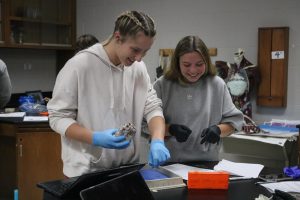COVID-19 shutdowns have benefited the environment
February 1, 2021
COVID-19 has had an immense impact on people all around the world and has come with many struggles of its own— but with those struggles came some good in the environment.
According to NBC news, coronavirus shutdowns have benefited air and water. There has been a noticeable decrease in pollution and greenhouse gas emissions in some countries. In China, there had been a 25 percent drop in carbon dioxide emissions in late January 2020 compared to the same time a year prior.
In Delhi, India, a study had been conducted on air pollutants before and after lock down. According to the U.S National Library of Medicine, before the lockdown, PM10 was at 176.07. After the lockdown, it was at 84.79. This had been the most drastic change in the table showing how much the Earth and environment changed over a short time period.
The main thing that decreased during the lockdown was carbon dioxide. Carbon emissions went down 17 percent during the lockdown period, according to the Wall Street Journal. However, there is a fear that all the numbers will rebound once taken out of lockdown.
The shutdowns were viewed as a bounce back for the environment. With many places being shut down, it also had a positive impact on the ocean. According to the U.S National Library of Medicine, coral reefs had relaxed from a decrease in noise pollution during the lockdown. Dolphins were also spotted coming closer to shore because of less fishing activity.
While COVID-19 has been a blessing and a curse for the Earth, it is significant to realize that such drastic changes, such as lock downs, do not have to be made in order to clean up and heal the earth. There are little things that can be done everyday to help. Start by recycling, volunteering to help pick up garbage, donating to an organization that helps clean up the ocean, donating old clothes and buying from thrift stores. There are countless small things that can be done in everyday life that will have the greatest impact on the earth.












